Many Emigrate, Some Start Croatian Businesses: Meet LinArs in Varazdin
August 9, 2019 - Not everyone is emigrating. Meet LinArs, a Varazdin startup trying to build something at home rather than abroad.
I met a REALLY lovely man in a shop in Varazdin last week who gave me excellent customer service, really very impressive. He was also very personable, and we got talking a little after we had concluded the transaction. I told him I ran a news portal in English about Croatia, and his reaction was very endearing.
"My daughter and son-in-law have just started a business in Varazdin, if that might be of interest to you and if you think there might be a way to help them with some advice."
A father thinking of his daughter and how to help her through chance acquaintances doing his job. I come across this a lot in Croatia - the family bond is strong. I told him that I would be happy to help and left him my card.
Daughter Sara got in touch the following day and agreed to do an interview with TCN, which you can read below. Apart from being happy to return the favour to my new friend in the shop for his excellent customer service, I was curious about a young couple starting a business in Croatia in 2019, while so many people are emigrating. Perhaps even more so in Varazdin, which is just 20 kilometres from the Slovenian border and a relatively short drive to Austria and Germany, where the wages are much higher.
It turned out to be a very nice and inspiring interview with Sara, which you can read below (all photos from the LinArs website).
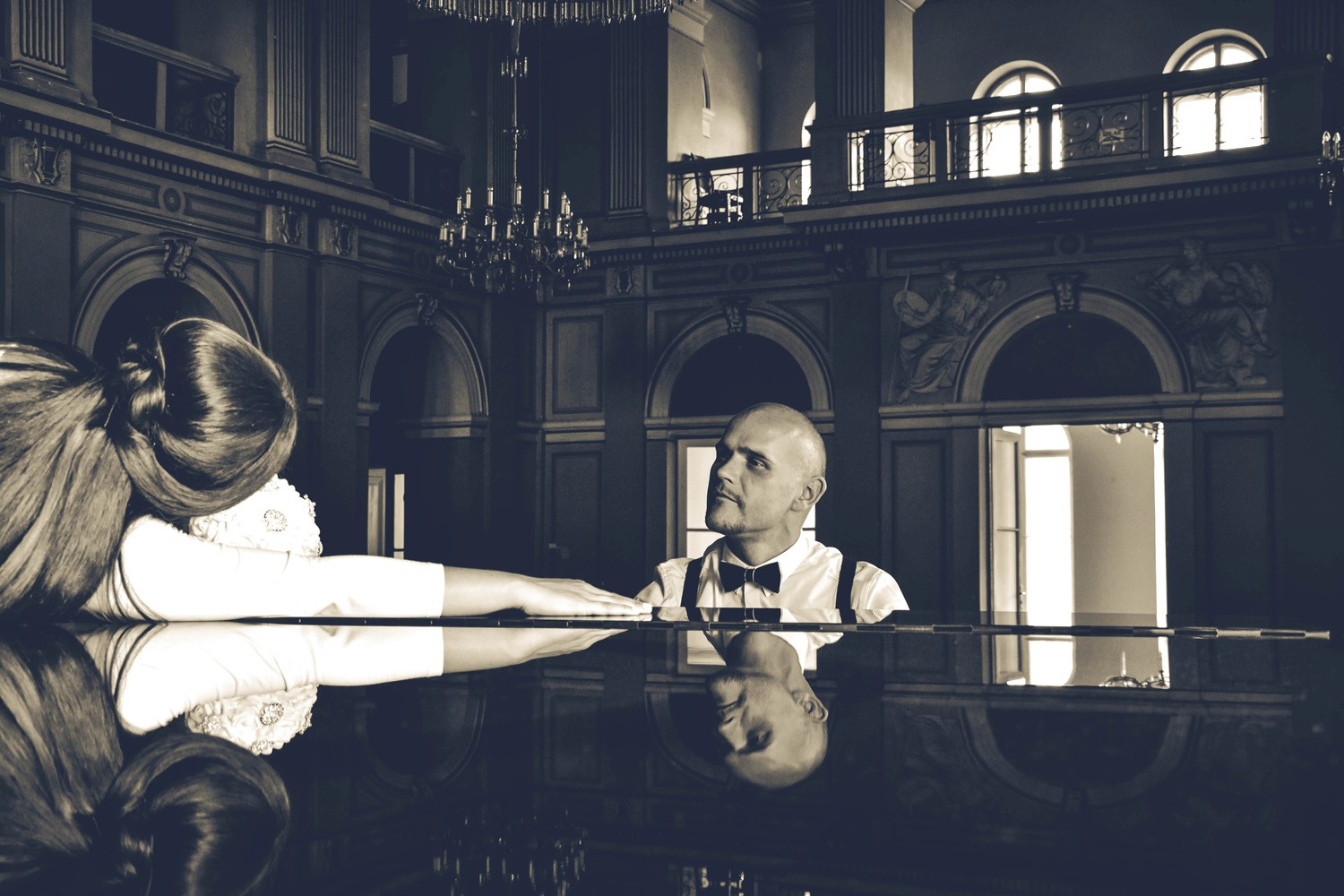
You have recently opened a new business with your husband - congratulations! Tell us first a little about the business.
Well thank you on the congrats, Paul! We are a duo of creative people that tries to help everybody that has a particular artistic idea and needs someone to make it real. What we’ve primarily focused on is photography in all its various forms, be it wedding photography (that is of the utmost importance to us; those kinds of events are full of emotions, so they allow you to unleash all the creativity kept within yourself in order to perfectly capture a moment of care and devotion), industrial photography, portraits, architecture-related photography. In addition to photography there’s graphic design (designing company and event-posters, creative, not-before seen visit-cards, wedding invitations, logos and so on). The other area of our work that we are currently getting better at day-by-day are voice-overs – Dominik tries to use his voice to its’ best potential (his singing “uses” it per se, though not as much as we both would like).

So many young people are leaving Croatia for jobs in other EU countries, and you live just 20km from the border. Did you also think of emigrating, and why did you decide to stay and start a business?
That's right – even some of our closest friends at some point decided to try and seek their lucky stars out in the West. We did think about emigrating, but in the end came to a conclusion that if all of us who are somewhat creative and willing to embark into the unknown, were to leave, then who would be left to bring any kind of prosperity and perspective? In the end, since there was a lot going on in terms of incentives for new start-ups coming up, we decided to take that route and do our best in the areas that we are specialized in.
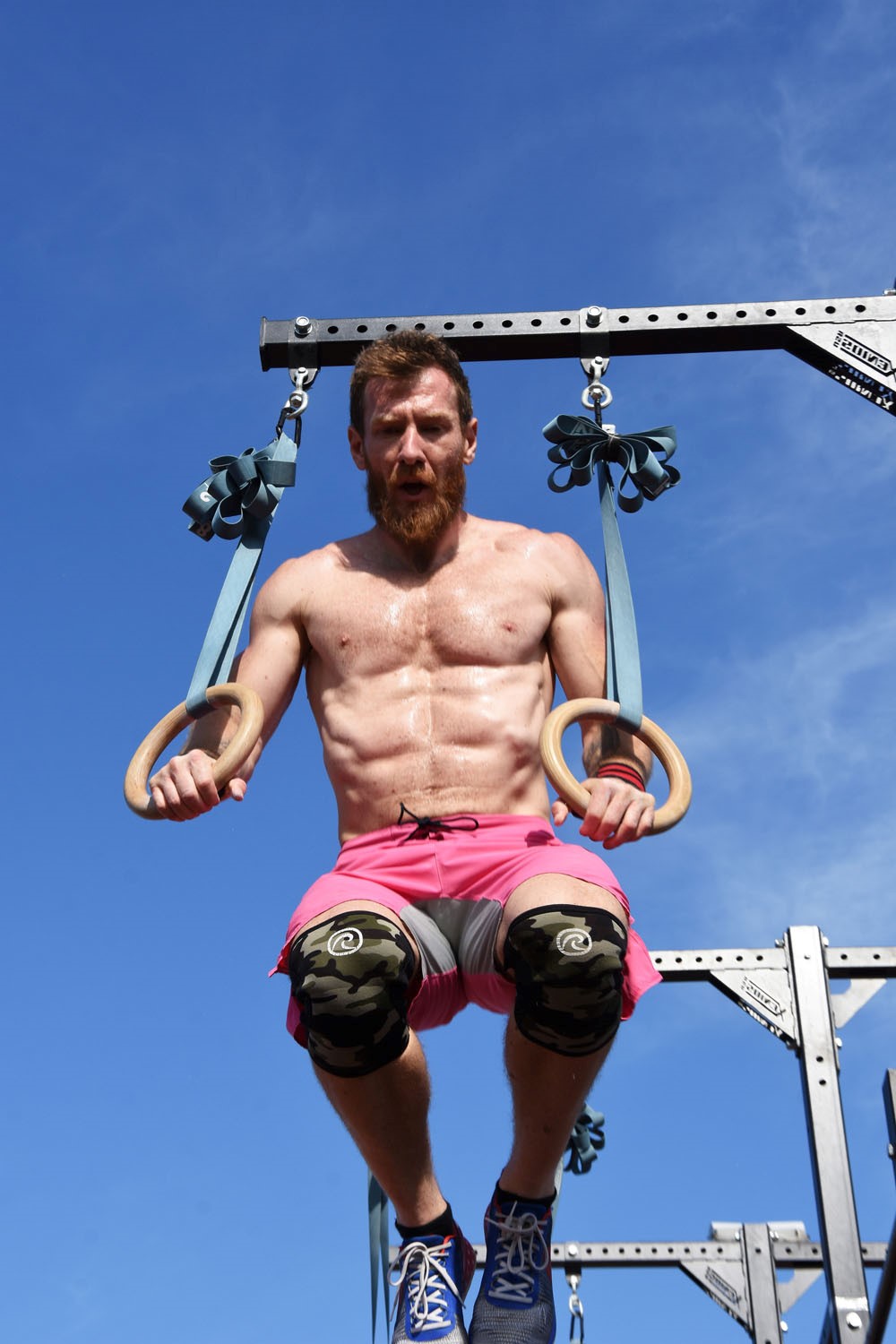
So let's look at starting a new business in Croatia in 2019. How easy was the process, and what were the biggest challenges?
The process itself is quite a bit simpler than you might have heard from the stories of those that have nothing to do with conducting business. The biggest challenge was definitely properly planning and organizing our first year, since we have to think broadly in terms of the market that we are providing services in. Once you have all that figured out, it’s literally a matter of you going to a specific counter at a specific office and bringing the exact paper. No more, no less. You probably have to deal a bit more with bureaucracy here than let’s say in Ireland (our friend started her own business there and was blown away by the speed that everything was carried out), but hey, you do get to be your own boss in your motherland, after all.
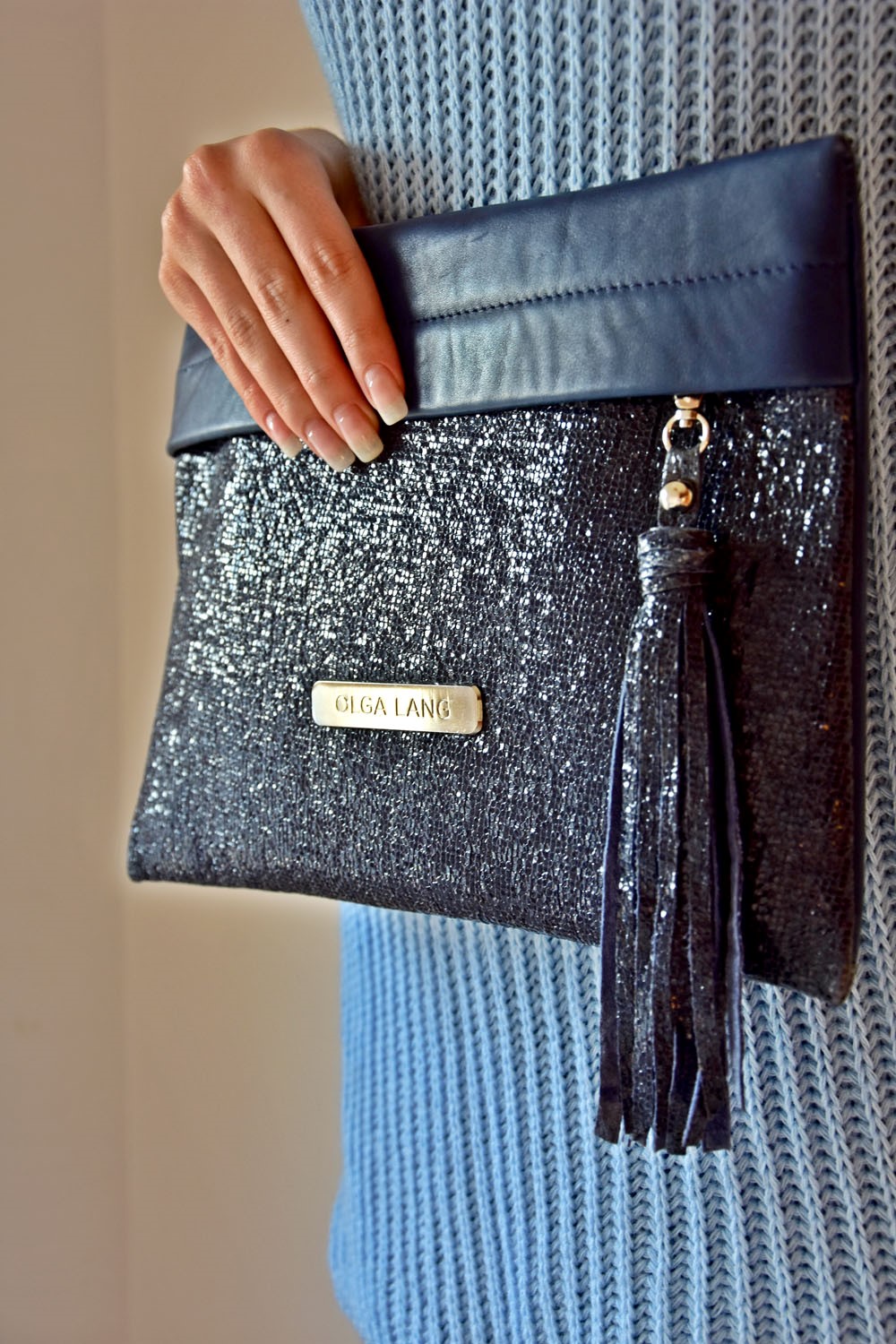
Croatia is famous for its bureaucracy - how are you finding it?
It all depends upon your expectations – if you’re serious about the whole story of a start-up that you’re trying to realise, then if somewhat stubborn and lazy bureaucracy is the only obstacle, you have nothing to worry about. The process of starting a business itself took no more than a month from the get-go to working on our first project.
Are there any incentives for young people/new businesses?
Incentives? Yes, one big, massive yes. That is the very reason we decided to take a risk and try something on our own. Although EU membership definitely has its’ caveats (as your fellow-citizens have already spoken some time ago), one of its greatest advantages is that it encourages their people (and has means to do so, if in no other way, then by financing great ideas) to do business in the area that they love the most. Just imagine gathering a specific amount of money in a short period of time, while trying to live a somewhat normal middle-class life. Right, it’s impossible (at least in Croatia) in your 20s. Incentives allow you to get whatever it is you might need to realise the very ideas that lit up the idea-sparkles in your mind. Since we were both involved in starting our own business (Dominik just quit his day-job prior to applying for one of the incentives that our Employment Institute is providing through EU Funds), we got enough wind in our sails to work and provide services that are at the level that we planned.
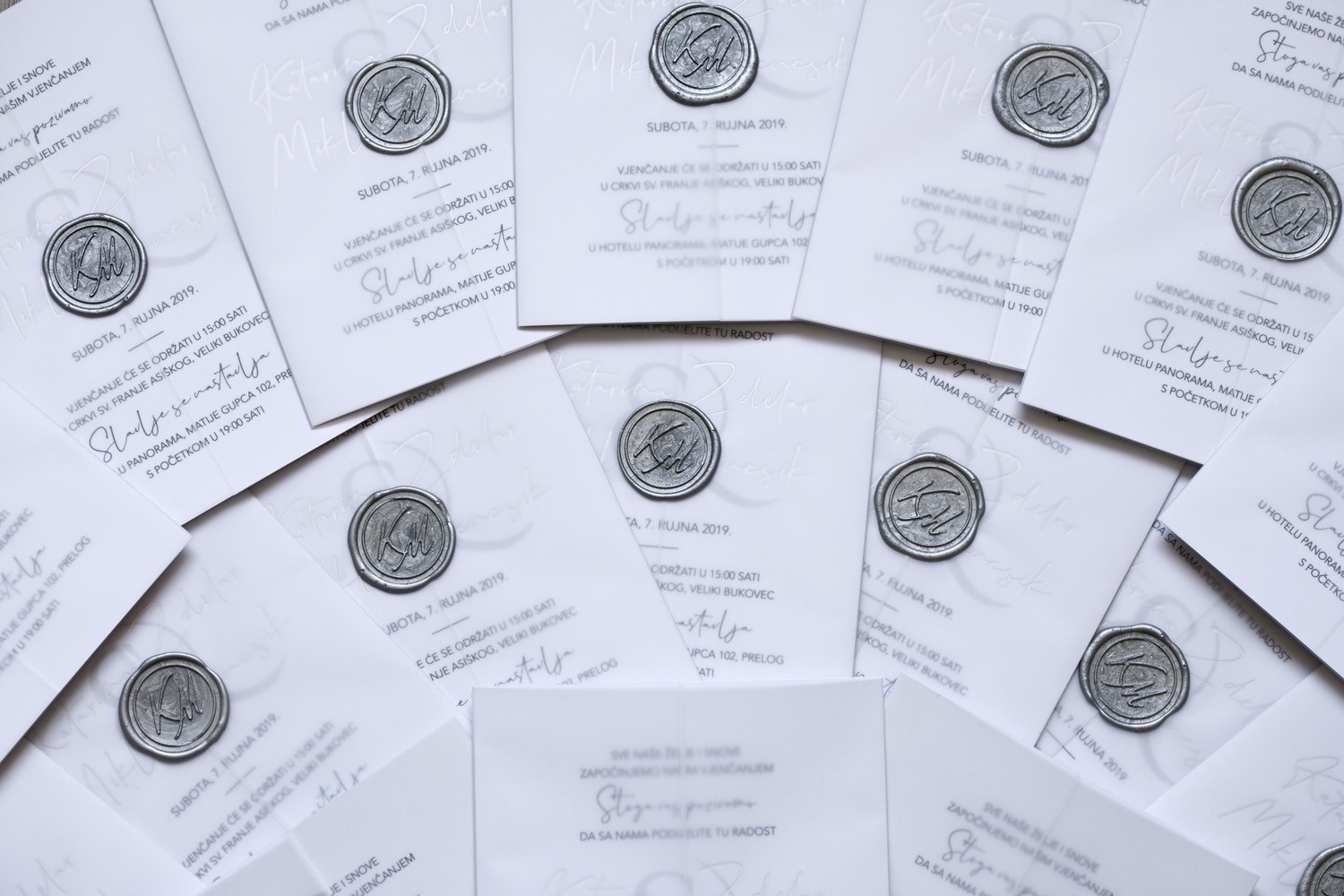
What is your most popular service?
Our most popular service is wedding photography. That is what we’ve been doing over the past few years out of curiosity, out of goodwill and as a hobby for our friends and families.
Tell us a little about life in Varazdin these days? It is a gorgeous town and I love living here. But tell us from a local perspective. Has it changed in the last 10 years, and if so, how? Has emigration been a problem here too?
Among many of our locals, there is a somewhat negative narrative on life here, but we see our town as rather progressing towards a kind of modern Baroque town that definitely has something to offer. It has changed quite a bit over the past 10 years, especially in its social aspect – it was at its lowest ebb some five years ago. That all started to change recently – the Tourist Board is doing its best to provide and engage locals, as well as potentially interested neighbours with new and interesting upcoming events. Emigration has been a problem here since many people of our generation have a very simple logic - “if I can get paid several times more elsewhere for the same amount of work that I am doing here, then it must be quite foolish not to grab the chance of better life out there somewhere”.

Good luck with your business - where do you hope to be in 5 years?
Thank you! Today’s world tempo of living (be it personal, or business) is so quick that it doesn’t make sense to plan too far in advance. Who knows, in five years’ time, we might be happily waking up to a cuppa tea, bacon and eggs in the heart of the ole’ lovely and great ship called Britannia.
To learn more about Sara and Dominik's business, check out the LinArs website.
Away from the Coast: Late Morning Coffee in Varazdin in August - Paradise! (VIDEO)
August 4, 2019 - As many head to the coast for the summer holidays, the towns of continental Croatia are a little emptier than usual, offering idyllic relaxation over morning coffee in places such as Varazdin.
The Croatian coast is the place to be once the school holidays begin, and tens of thousands of Croatians have already decamped to the coast from Zagreb and other inland towns and villages.
But what is it like to spend the summer in continental Croatia, away from the coast?
This is my first experience, and I have to say, I love it. After a month on the coast, mostly on Hvar, but also Korcula, Dubrovnik and Montenegro, I decided to leave my girls to the beach and their loving mum and grandparents. While I was having a lot of fun, I was not getting much work done. And the prospect of getting home to my village in Varazdin with no distractions became to appealing to ignore. It has been a great decision.
And it allowed me to witness moments like this.
I had to pop into town for a couple of chores yesterday, and it turned out that my timing was perfect, as it coincided with the changing of the city guard.
It was a glorious day, so I joined the locals and sat for a coffee to take in this ancient tradition and enjoy the magic of the main square.
And my focus quickly turned to the little drummer boy who was following the Purgari guards - isn't he cute?
As befits the former capital of Croatia, Varazdin has for the past two and a half centuries been watched over by the Varazdin Civil Guard. They were recognised by the Austrian Empress Maria Theresa in a statute of 1750. It is an honour to be a member of the Varazdin Civil Guard. A member can only be a man born in Varazdin who is proud of its honour and irreproachably honest. In their blue grenadier uniforms and tall fur hats, these handsome ‘Purgari’ play a part in many secular and religious events. However, the most attractive aspect of the ‘Purgari’ is the ceremonial changing of the guard, which is staged most Saturdays in front of the Varazdin City Hall. The company had its own orchestra and flag, and the ‘Kume’ (‘Godmothers’) of the flags were prominent figures from the ranks of high nobility or the royal house. Therefore, the ‘Kuma’ of the last Purgar’s flag from 1998 was Francesca von Habsburg. From 15th May to the 15th October, the Guard parade takes place every Saturday from 11.00 a.m. to 12.00 p.m. in front of the City Hall.
In 2017, the Varazdin Purgari were added to the UNESCO List of Intangible Heritage.
Learn more about Varazdin in our Total Croatia Varazdin in a Page guide. Gorgeous town.
Varaždin ''Professor'' Works for 26 Years Owing to Fake Diploma
Fancy becoming a professor and landing permanent employment in a school in Croatia? All you need is your own computer and a free half an hour or so.
Ever thought that you'd never get anywhere in Croatia in terms of landing a permanent, well paying job without a government connection? Are you unlucky enough not to be someone in the ruling party's cousin's friend?
If you thought your basic position as a normal person looking for normal work wouldn't be good enough, then you thought wrong, if you though the honest way was the only way to go, that is. Why not procure a fake diploma? Or better yet, save on some cash and make it yourself!
As Poslovni Dnevnik writes on the 26th of July, 2019, police officers of the Varaždin Police Administration, who visited a high school in Varaždin after having received a tip off, have completed a criminal investigation into a 55-year old professor upon suspicion of him having committed the criminal offense of counterfeiting. To be more specific, the police suspected the professor to have been working with a false diploma.
As suspected, after June 1992, the professor in question created a forged diploma from a certain faculty in Zagreb on his personal computer, from which it was apparent that the individual had graduated in engineering and was able to become a professor of engineering, a career he took up in the early nineties at the same school he had been working in until this strange information finally came to light.
The 55-year-old put this forged diploma, which was done on his own device, to use in order to gain employment within the field. He used the diploma in order to obtain work at the high school in Varaždin, where he was employed between 1993 and May 2019.
The economic situation in Croatia appears to only be as bad as you make it, at least in this case. Situations involving fake diplomas aren't all that uncommon in Croatia, and it's unlikely that this will be the last cause we hear about.
Make sure to follow our dedicated lifestyle page for much more.
Varaždin Baroque Evenings Festival to Take Place in September
ZAGREB, July 11, 2019 - The 49th edition of the Varaždin Baroque Evenings festival will take place from September 20 to October 1, with Sweden as this year's partner country, the organisers announced on Thursday.
The festival will open in the Varaždin Cathedral with the Gothenburg Baroque Choir and Orchestra performing works by Vivaldi, Roman, Zelenka, and Handel under the baton of Magnus Kjjelson.
It will be one of 19 concerts to be held in Varaždin and Trakošćan Castle, while nine more will take place in other towns in Varaždin County, Međimurje County, Krapina-Zagorje County and Koprivnica-Križevci County, as well as in Ptuj, Slovenia.
The Gothenburg Baroque Choir and Orchestra will also perform on the second day of the festival to present the ancient music of Scandinavia.
The festival's director Davor Bobić singled out a concert by the Romeo & Julia Koren ensemble who will perform The Decameron under the artistic leadership of Benoit Malmberg in the Croatian National Theatre in Varaždin on September 22.
Swedish Ambassador Diana Helen Madunić said she was looking forward to so many Swedish musicians coming to Varaždin.
More news about festivals can be found in the Lifestyle section.
Zagreb is a Pesticide Free City: Will Varazdin Be Next?
July 8, 2019 - Zagreb joined the European Pesticide Free Town network last year. Will Varazdin be next?
One of the things I have appreciated most about moving from the island of Hvar to Varazdin in northern Croatia has been the diversity of people I come into contact with. I love Hvar (and am currently enjoying that endless sunshine) but with an economy so focused on tourism, it is not exactly representative of daily life in the rest of Croatia. And as TCN moves away from a main focus on tourism to other aspects of life, it has been fascinating to learn of various initiatives around the country, and to meet people whose passions are far away from tourism.
I have a friend who lives in Varazdin and commutes to Zagreb each day, and we have a nice chat as we drive in together on the days when I have business in Zagreb. He has introduced me to various people and ideas, including Natlija Svrtan of Earth Trek (Zemljane Staze in Croatian), an environmental group which is working on - among other things - getting rid of the use of pesticides in public places in the towns and cities of Croatia. I asked Natlija to write a piece for TCN on the subject. Here it is. Will Varazdin and other Croatian towns and cities follow Zagreb's lead?
Pesticide Free Zagreb – safe for citizens, excellent for biodiversity
Zagreb is Pesticide Free Town – will other towns in Croatia follow the example?
Since February 2018, Zagreb has been a Pesticide Free Town – which means that Zagreb does not use pesticides in public places.
The Mayor of Zagreb, Mr. Milan Bandić has recognized this initiative as a valuable contribution to improving the living conditions of citizens of Zagreb. Therefore, Mr. Bandić signed the Pledge with which he commits to phase out pesticides in public places. With this step, the citizens of Zagreb can enjoy lying on the grass without worrying if they are inhaling dangerous toxins, and their pets can run around without having allergies and acute poisoning from chewing the grass.
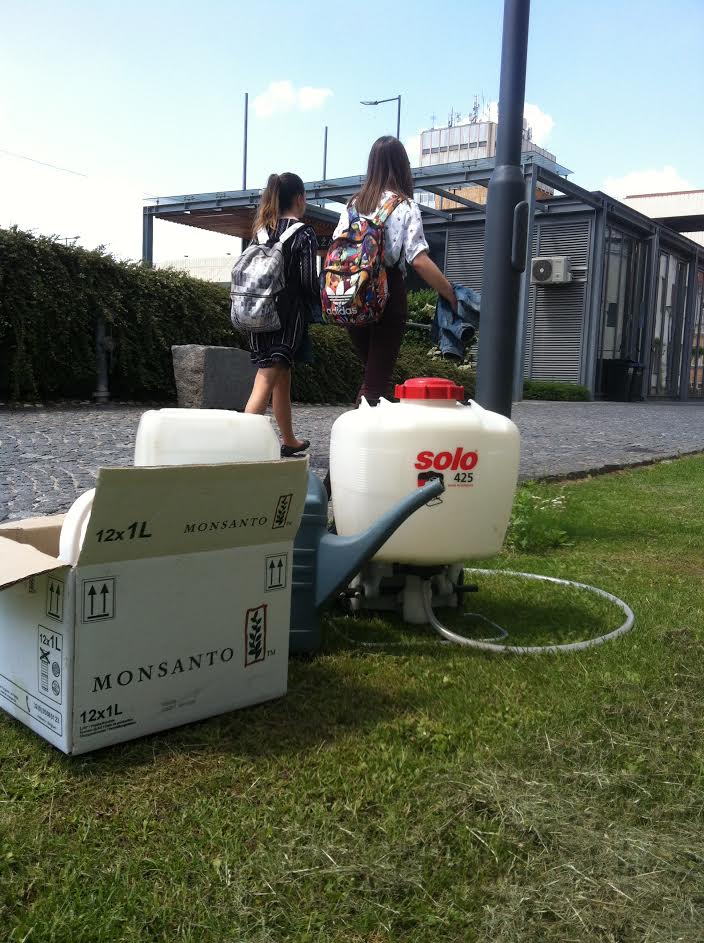
By signing this Pledge, Zagreb has become a member of European Pesticide Free Towns Network, a network of European towns who replaced pesticides with sustainable, non-hazardous alternatives. This Network is established by PAN Europe, together with its member organizations. Pesticide-free towns have teamed up within this Network with the aim of creating a platform for linking and sharing experiences, and effectively supporting cities in transition.
The use of pesticides in public places is considered to be unnecessary. While gardeners in Pesticide Free Towns use mechanical technics such as hand weeding, or machine treatment with hot water or steam, biologists and city leaders are trying to promote the “return of Nature back to the towns”, by convincing people that, for example, plants on the pavements are not “an ugly scene”, and that native wildflowers are as beautiful as those cultivated. With accepting native plants, and by accepting so-called weeds on lawns, we are contributing to biodiversity and to the return of pollinators, besides sparing the animals of direct poisoning.
Pesticides have multiple negative effects:
- Pesticides have a direct impact on human health, and although the effects of pesticide use do not show directly and at the moment of consumption, pesticides certainly have a significant impact on human health. They are carcinogenic, cause non-Hodgkin's lymphoma, affect reproductive health - conceiving problems, cause abdominal pain, obesity, diabetes, allergies, neurological problems, agitation, asthma, Parkinson's disease, and many other diseases and disorders.
- The application of pesticides is never limited to the area for which the pesticide application is intended, but the effects of pesticides are spread far beyond the scope of application. Pesticides spread with air and water after being washed out by irrigation or after rain. Unfortunately, in almost all tested water samples (in Western European countries) residues of pesticides were found.
- Pesticide cause direct harm to animals and insects that inhale or digest pesticides, or eat animals and bugs that are intoxicated by pesticides; this causes the imbalance in nature by killing bugs which are, or predators, or the food for other animals; direct harm applies especially to amphibians and fish which have permeable skin and therefore absorb toxins with their whole body surface. By choosing alternatives to pesticides, the impact on soil, air and water pollution, especially the groundwater that is a source of potable water is eliminated. Animals and plants are not affected by these toxins, and the biodiversity is improved.
In 2018. the Earth Trek association conducted a campaign urging all the cities in the Republic of Croatia to follow the examples of cities in Western Europe countries. Zagreb and Ozalj are those who committed to phasing out pesticides.
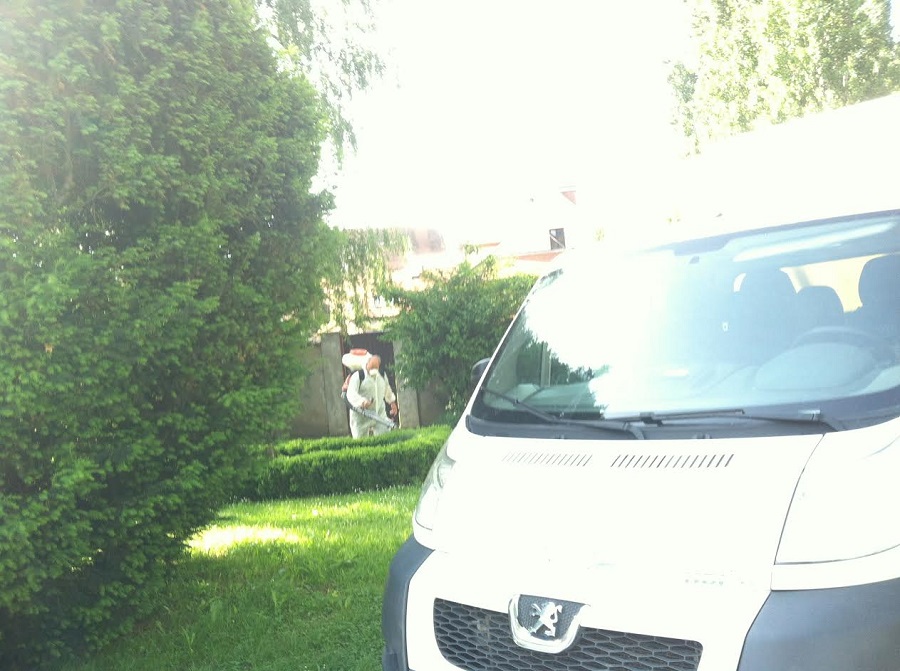
In the Town of Varaždin the use of pesticides is not banned.
Varaždin has beautiful parks and green areas which are probably treated with pesticides. An especially endangered group are children – who run around grass, roll on it and expose themselves directly to pesticides.
Since the use of pesticides is not limited only to the application spot (which was proven by taking the soil samples of children’s playgrounds), children are exposed to dangerous toxins, even if those were not applied in kindergartens, or on the playgrounds. Especially worrying is the fact that most of these toxins are endocrine disruptors and have long-term effects on health.
The town of Varaždin hasn’t responded to our request to sign the Pledge.
We haven’t received the explanation on cancelled meeting in September last year, accusations of writing inaccurate allegations on our web page, nor the promised notification after planning to ask the Town’s Utility Company for an explanation of pictures we took in May 2018.
Earth Trek wishes the best for the citizens of Varaždin. Besides the elimination of toxic substances from public areas, air, soil and ground water, the transition to a pesticide free concept would open new job positions, and would also promote the Town of Varaždin trough Pesticide Free Towns marketing tools.
We believe the health of the citizens should be everyone’s first concern, and even though it seems that the use of pesticides is the cheapest way of green areas maintenance, the externalities show that the costs of the treatment of the illness caused by the use of pesticide cost the society and the government even more.
It takes time for the pesticides to decompose, particularly for those persistent, and it takes time for nature the re-establish its balance – that’s why we need to act immediately and start applying sustainable systems, in order to leave a healthy world to our children.
For more information about Earth Trek in Croatia, visit the official website.
Varaždin and Zagreb to Welcome Participants in Freedom Charity Run
ZAGREB, June 29, 2019 - The Freedom Charity Run, an international humanitarian event that started in Gdansk on June 26 and will end in Milan on July 6, passes also through Croatia, and two Croatian cities - Zagreb and Varaždin - this weekend welcome six athletes who will run 1,050 kilometres under the slogan "We run, we serve".
The northern town of Varaždin welcomes the runners on Saturday and the capital city welcomes them on Sunday.
The run passes through Poland, Austria, Slovakia, Hungary, Croatia, Slovenia and Italy and the cities of Zagreb, Varaždin, Vienna, Bratislava, Venice, Ljubljana, Trieste, Verona and Milan.
During one part of the Croatian section of the run, the runners will be accompanied by athletes from Varaždin.
Since the run is a charity event, local Lions clubs are involved in its organisation.
Funds to be raised by selling commemorative T-shirts are intended for the children of Rwanda and half the money to be raised in Croatia will be donated for local humanitarian drives.
The Freedom Charity Run is held under the auspices of Lech Walesa, leader of the Polish Solidarity trade union that 30 years ago toppled the communist regime in Poland and secured democratic elections at which Walesa was elected president. In 1983, Walesa won the Nobel Peace Prize.
More Varaždin news can be found in the Lifestyle section.
Hot Air Ballooning in a Roman Amphitheatre: Pula Meets Varazdin County
An innovative tourism promotion from Varazdin County in one of Croatia's most versatile locations, as Croatian naive art is celebrated in hot air ballooning style in Pula on June 22, 2019.
A rather unusual sight for Pula residents and tourists a few years ago, as the Pula Arena, the 6th largest Roman amphitheatre in the world, welcomed yet one more innovative tourism project.
The Arena, which has already hosted an ice hockey tournament, various concerts from the biggest name in music, and soon a match between legends of Croatia and Bayern Munich, welcomed an altogether different event a few days ago, as Varazdin County arrived in Istria to present its tourism offer to the people and tourism of Istria.
Varazdin food and wine specialities were accompanied by traditional music and dance, and the entire event was protected by the UNESCO-protected Purgeri soldiers of the Varazdin Guard, but by far the star attraction was the hot air balloon, which took centre stage.
Hot air ballooning is popular in the Zagorje region, and there is an annual Ballooning Rally, which takes place in April. The balloon which starred in Pula showcased one of the most famous works of one of Varazdin County's most famous cultural icons - The Flower Celebrates by Ivan Rubazin of Novi Marof, one of the stars of the Croatian naive art scene.
There is a wonderful video of the event, which can only be viewed via this link, as well as a short video report by HRT. For more information on the event, the Varazdin County Tourist Board has issued a press release, which you can read here.
To learn more about the amazing events held at Pula Arena, check out the dedicated TCN page, and to follow the latest news from Varazdin County, TCN's coverage of Varazdin can be found here.
Croatia Lose Friendly Match to Tunisia in Varaždin
June 11, 2019 - The Croatia national team defeated Wales on Saturday in Osijek for their third Euro 2020 qualifier. Croatia's win against Wales brought peace to Zlatko Dalić in front of the new challenges awaiting his team in September in Slovakia and Azerbaijan.
But before the team goes their separate ways for the summer, Modrić and Co. had one last appearance in Varaždin for a friendly against Tunisia. It was a game that saw 8,000 fans and all ticket sales go to charity, and one that tested out some new football rules. It was also good preparation for Tunisia before they play in the Africa Cup of Nations later this month.
Dalić came out with a different lineup than against Wales and made sure to give his reserves a chance against Tunisia. Namely, Dalić started with Sluga in goal, Benković, Lovren and Vida in the back, Melnjak, Kovačić, Badelj, Pašalić, and Brekalo across the midfield, and Petković and Kramarić up top.
????
— HNS (@HNS_CFF) June 11, 2019
? #Croatia starting lineup! ?#BeProud #CROTUN #Vatreni pic.twitter.com/Ayre5EFlcd
It took a while for this Croatia side to get their bearings, and the first half as a whole was pretty shaky - Tunisia was actually the first to score in the 16th minute thanks to a goal by Badri!
While Croatia had a few chances in the first half, the game went into halftime with Tunisia in the lead.
At the start of the second half, Dalić made his first change - namely, Lovren was substituted for Bartolec. Just one minute later, Croatia equalized thanks to Bruno Petković’s first goal for the Croatia national team. It was 1:1 in the 47th minute.
In the 55th minute, Dalić made two more changes - Kovačić and Badelj came out for Perišić and Brozović. Minutes later, Brekalo came out for Halilović, and Kramarić came out for Caktaš.
Croatia was unlucky in the 69th minute after the ball hit Vida’s hand in the box for a Tunisia penalty, which Sliti scored for 1:2.
It was time for Dalić to bring in the big guns, and Luka Modrić came in for Pašalić right after Tunisia retook the lead.
Croatia attacked and had a few chances to score, though a burst of heavy rain and wind hit Varaždin, making it hard for either team to play much in the last 10 minutes.
While Croatia put on the pressure, Tunisia was able to defend - and the weird weather helped no one. The game ended 1:2 for Tunisia.
To read more about sport in Croatia, follow TCN’s dedicated page.
Successful Croatian Company ''Include'' Enjoys Yet More Investment
The highly successful Croatian company ''Include'' recently celebrated its fifth birthday, and today this remarkable company has had its worth valued by an independent auditing house, and that worth has been estimated at more than 110 million kuna.
As Poslovni Dnevnik writes on the 15th of May, 2019, Solin's Include, a Croatian company which produces smart benches headed by young entrepreneur Ivan Mrvoš, is continuing to go from strength to strength. Mrvoš recently confirmed the first direct investor in a new investment round. That investor is no less than Stjepan Talan, the director of the Varaždin-based company Solvis. Solvis currently employs 180 people, and back in 2017, this company recorded more than 600 million kuna in revenue. In addition, the company has been listed on the London Stock Exchange for the past two years among the 1000 companies that inspire Europe.
"For the last ten years, my company, Solvis, has been successfully doing business and selling its solar panels on global markets. I'm looking at the company Include with perspective, and, considering the fact that it works in the same industrial sector, I think this investment can contribute to the betterment of overall business, primarily synergy between Solvis and Include,'' stated Solvis' Stjepan Talan.
Cooperation between Include and Solvis started back in 2015, and otherwise, Include launched a new investment round twenty days ago, via the Funderbeam platform, and up until now, an impressive eleven million kuna has been raised by 450 investors from Croatia and across the world. In addition to the money raised by Include through the platform, negotiations with several private investors such as Stjepan Talan and the total investment amount (private investors and the Funderbeam platform) that sum could reach up to thirty million kuna.
Include exports eleven products to 43 global markets, and are present in 260 cities around the world. The company's worth was estimated at 110 million kuna this year by an independent auditing firm. Owing to its innovative, smart urban furnishings, the Croatian company has already won several much deserved awards and recognitions, such as Deloitte's Technology Fast 50 and Forbes' 30 under 30 award for its founder, Ivan Mrvoš.
"We're exceptionally pleased that this cooperation with Solvis has given us a new dimension,'' said Include's Ivan Mrvoš.
Make sure to follow our dedicated business and Made in Croatia pages for much more.
Digital Croatia: Best Large ''Digital'' Cities Zagreb and Rijeka
Just how close are we to a real digital Croatia? The answer is unclear and as varied as ever, but some Croatian cities have shown promise with some rather impressive and encouraging results.
As Novac/Gradonacelnik.hr writes on the 23rd of April, 2019, although more and more cities are gradually digitising their business and investing in smart city solutions, and some of the most advanced have almost completely switched to doing solely digital business, generally speaking, Croatian cities are only in the very early stages of the much needed digital transition, just as Croatia is, as a country, at the very bottom in Europe in terms of the digital readiness of general society and the economy.
As the methodology for ranking cities in terms of digital readiness is only at its very beginning even at the European level, stories and analysis of the "smart city" concept development here in Croatia are still very much based on individual experiences, examples and projects.
That is why, in order to gain a real elementary insight into the digitalisation of Croatia's services and the communication of the country's many city administrations with citizens, experts from Apsolon, a consulting company specialising in digital business development, has undertaken the very first major study of the ''digital readiness'' of twenty of the largest cities across Croatia. This study, according to project manager and smart management director at Apsolon, Ivana Novoselec, is the basis for the further development of research tools and methodology that will track the development and progress of Croatia's cities on an annual basis.
In its study, Apsolon divided the cities into three categories - large (Zagreb, Split, Rijeka, Osijek), middle (Zadar, Velika Gorica, Slavonski Brod, Pula and Karlovac) and smaller cities (Sisak, Varaždin, Šibenik, Dubrovnik, Bjelovar, Kaštela, Samobor, Vinkovci, Koprivnica, Đakovo, Vukovar.)
The digital readiness index at Apsolon was set based on several criteria - the availability of e-services (the number of administrative services and their digitalisation rate in Croatia), the availability of site service information and the development of unified services for making payments in the city, then came the availability of city data, the level of citizen participation in decision making and communication channels between the city administration and citizens, ie, the availability of data and time in which citizens receive answers to their various questions. At this stage, Apsolon hasn't entered into the internal processes in Croatia's city administrations, but rather focused on what services are offered to the city's citizens and how long such things typically take.
After this type of indexing and ranking, the title of the ''digitisation champion'' among the Croatian cities was awarded to the City of Rijeka, thus confirming its status as the best city in the Smart City category which it won last year. Apsolon pointed out that the City of Rijeka has achieved the greatest advances in the systematic raising of the quality of its services, but also the opening of data and communication channels to citizens.
"Rijeka as the most advanced city in Croatia in terms of digitisation and is characterised in particular by the emphasis on openness and communication with its citizens. Its administration is oriented towards clear communication (a very clear centralised e-services approach with well-organised access to all automated services and available forms), openness and participatory management," said project manager Ivana Novoselac.
In many categories, especially those relating to the functional aspects of digitisation (advanced digital services, e-citizen connectivity, etc.), Rijeka is followed closely by the City of Zagreb.
The city of Pula is the most advanced middle-size city in Croatia, which also presents its services and available information to its citizens in a systematic and very detailed way, raising standards in terms of transparency and interaction with citizens, and is certainly a champion among cities with between 50.000 and 100.000 inhabitants.
In relation to the criteria relating to specific functional and technological solutions, Karlovac, Velika Gorica and Zadar follow. For the City of Karlovac the large number of available administrative procedures on its website and responses to citizens' inquiries are generally quick made it stand out from the crowd.
Among the small cities in Croatia, there is no distinctly dominant digital champion, but according to research findings in different aspects of digitisation, Dubrovnik, Samobor, Sisak, Koprivnica and Varaždin appear to be the most successful ones, according to this research. Among the prominent representatives of this category, Dubrovnik is strategically trying to profile as Smart City and has a high quality City Card, e-Visitor platform, is very active on social networks and it continuing to develop innovative application solutions. When it comes to the number of digitally available services, Koprivnica ranks above all.
Samobor, which is particularly active on social networks and is the category winner for social networking, has a very comprehensive and interactive website which separates the site accordingly and has adjusted all of the information for citizens and for visitors, as well as separating foreign visitors from domestic ones.
It should also be noted that Bjelovar is extremely proactive in the field of the digitalisation of its administration, it is working on applicative transparency solutions as well as on internal digitalisation processes. What is particularly commendable is Bjelovar's focus on the digitalisation of its internal processes.
Make sure to follow our dedciated lifestyle page for much more.
Click here for the original article by Novac/Jutarnji/Gradonacelnik.hr


